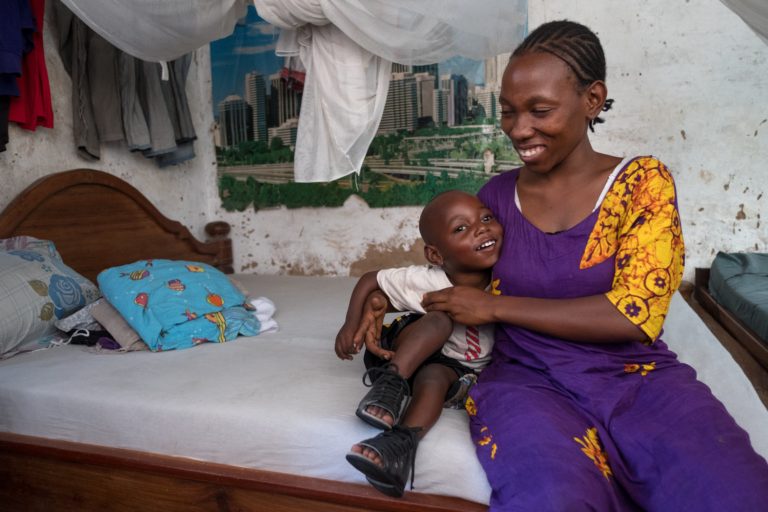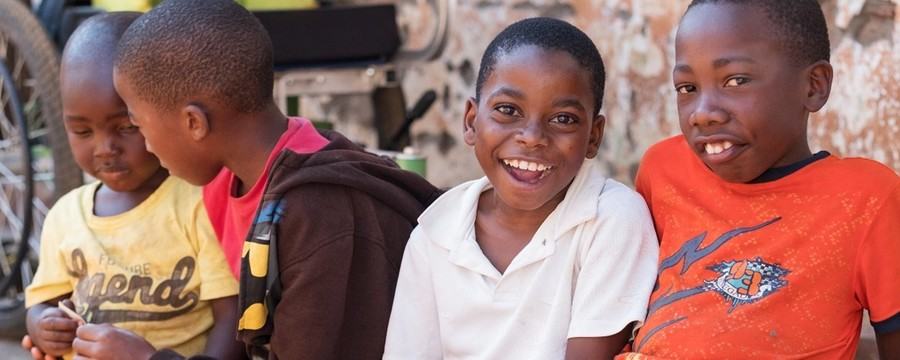Learning with us

Share this step
If this is your first course with us, please read ‘Using FutureLearn’ for an introduction to learning with FutureLearn.
We’re delighted that you’ve joined the course and wish you a warm welcome to the London School of Hygiene & Tropical Medicine. The School is renowned for its research, postgraduate studies and continuing education in public and global health. In addition to our course participants, we have more than 4,000 students and 1,300 staff working in over 100 countries – all with a collective purpose of improving health worldwide. This course has been developed in collaboration with Fiocruz, a leading public health research institution in Brazil.
How will we learn?
Throughout our three weeks together we will use articles, mini-lectures and interviews to highlight some of the key issues surrounding the health and wellbeing of children with developmental disabilities. We will build on our learning using a number of hypothetical case studies and we encourage you to assess your own learning through the quizzes available. Please do share your experiences and perspectives with your fellow learners and the course team in the ‘Comments’ section of each step. Look out for the ‘See Also’ section at the bottom of each page, where we will include supplementary reading and materials that you may find useful for further study.
How will I learn?
No single approach to the course will guarantee success. We encourage you to learn in the manner that best suits you and remember, this may differ from others. In order to maintain enthusiasm and gain confidence throughout your studies, you may like to take an active role in the course.
For example, you could:
- Take notes throughout
- Reflect on your learning and asks questions like… which aspects of the material are most interesting to you and why? Is there anything you have struggled to understand? Why might that be?
- Analyse connections between the steps to help build a clearer picture of a topic
- Ask yourself questions about what you’re learning and how it relates to your own experiences
- Discuss your learning with others, whether fellow learners on the course or with colleagues and friends
- Consider how you can apply new knowledge, in either your personal life or professional setting
- If others on the course are struggling, help them along by explaining what you have learned and your thoughts on the topic
If you have any questions throughout the course, please do not hesitate to ask questions of your fellow learners and course mentors.
Diana is learning sign language in Bolivia. © CBM/Foto Backofen Mhm
An important note on course content and terminology
As you will learn throughout the course, the terms “disability” and “developmental disability” cover a wide range of people living in different circumstances across the world. Each have different attributes, needs and lives. We have tried hard to include a broad range of voices and examples, but we recognise that there will be gaps. We encourage you to reflect on the context in your setting as you learn throughout the course.
The topics covered in this course regard the care of children with developmental disabilities, but occasionally we will use the term “children with disabilities” when referring to issues relevant to all children with disabilities, such as the global movement of disability. Children with developmental disabilities are of course part of this group, and when we use the term “children with disabilities”, we are also discussing the issues relevant to children with developmental disabilities.
It is really important that the language used to describe disability is respectful to people with disabilities and in line with the way they describe themselves. We have taken the time to ensure that the content of this course uses respectful terminology throughout. We also encourage you to look at the article in the ‘See Also’ section below, on disability terminology, so that you are aware of respectful, versus disrespectful, language.
Additionally, throughout this course we will regularly use the term ‘parent’ when describing caregivers of children with developmental disabilities. Of course, caregivers are not always the biological parent, but for ease of consistency and understanding, we have decided to use ‘parent’ throughout much of the course.
We have also decided that we will not be discussing the process of termination of pregnancy for foetal anomaly. Given the sensitive nature of the topic, especially in countries where it is prohibited by law, we have chosen not to discuss the process in this course.
Ripon (7) receiving rehabilitation therapy in Bangladesh. © CBM/Patwary
Video interviews
As you will discover, the course contains video interviews with parents, healthcare professionals and persons with disabilities, so we can hear of their experiences and perspectives. We decided that it would not be appropriate to interview children with developmental disabilities. They are a vulnerable group, and given the public nature of this course, we decided it would be most ethical to interview parents only, alongside adults with disabilities.
Join the discussion
We would love to hear from you throughout the course. Almost every step has space for conversation and debate via the ‘Comments’ area at the bottom of each page. While ‘Discussion’ steps feature more focused conversations, you are able to share your thoughts and perspectives at any point, and we will regularly prompt you with questions or suggestions. You can contribute to these conversations as and when you are able.
Please note that you should not share your own personal contact information, and please remember to follow professional codes of conducts. For example, do not reveal identifying information about your patients or students.
You might like to read 6 tips and tools for social learning on FutureLearn to help you get the most out the platform’s social features.
In general, following some simple rules will help you have effective discussions online:
- Keep your comments brief and to the point
- Read your comments and replies all the way through before you post them. You can’t delete a comment once posted but you can edit your comments
- Criticise the idea, not the person
- Don’t write a reply that you wouldn’t say face to face
- Remember that learners vary in culture, age, and experience
- Not all learners have English as their first language, so always try to write clearly
- Explain any acronyms you use and avoid jargon if you can
- If you see a message that you think is offensive, click its ‘Report’ flag icon. It will be reviewed by FutureLearn and will be removed if they agree with you
This course is no longer being moderated by the LSHTM team. If you see a comment that violates FutureLearn’s Code of Conduct, please press the flag button beneath the comment for FutureLearn’s moderators to review.
 Nasri and his mother Joyce at their home in Dar es Salaam, Tanzania. © CBM/Hayduk
Nasri and his mother Joyce at their home in Dar es Salaam, Tanzania. © CBM/Hayduk
Re-using course materials
Unless stated otherwise, the materials on this course are published under the Creative Commons License CC-BY-NC-ND which permits non-commercial use without asking for permission. Materials will also be made available on the School’s website. If you’re an educator or work in an aligned field, we encourage you to download and re-use the content from this course for teaching and learning purposes. However, under this Creative Commons License, we ask that you do not edit the content or video footage. If you use material, you must use it in its entirety.
This is particularly important if re-using videos. Parents, persons with disabilities and healthcare professionals have kindly offered footage for this course. Please do not edit clips of these individuals, as we must ensure that video footage is used in the manner intended and as generously agreed by participants. Thank you.
Share this
Integrated Healthcare for Children with Developmental Disabilities

Integrated Healthcare for Children with Developmental Disabilities


Reach your personal and professional goals
Unlock access to hundreds of expert online courses and degrees from top universities and educators to gain accredited qualifications and professional CV-building certificates.
Join over 18 million learners to launch, switch or build upon your career, all at your own pace, across a wide range of topic areas.
Register to receive updates
-
Create an account to receive our newsletter, course recommendations and promotions.
Register for free







